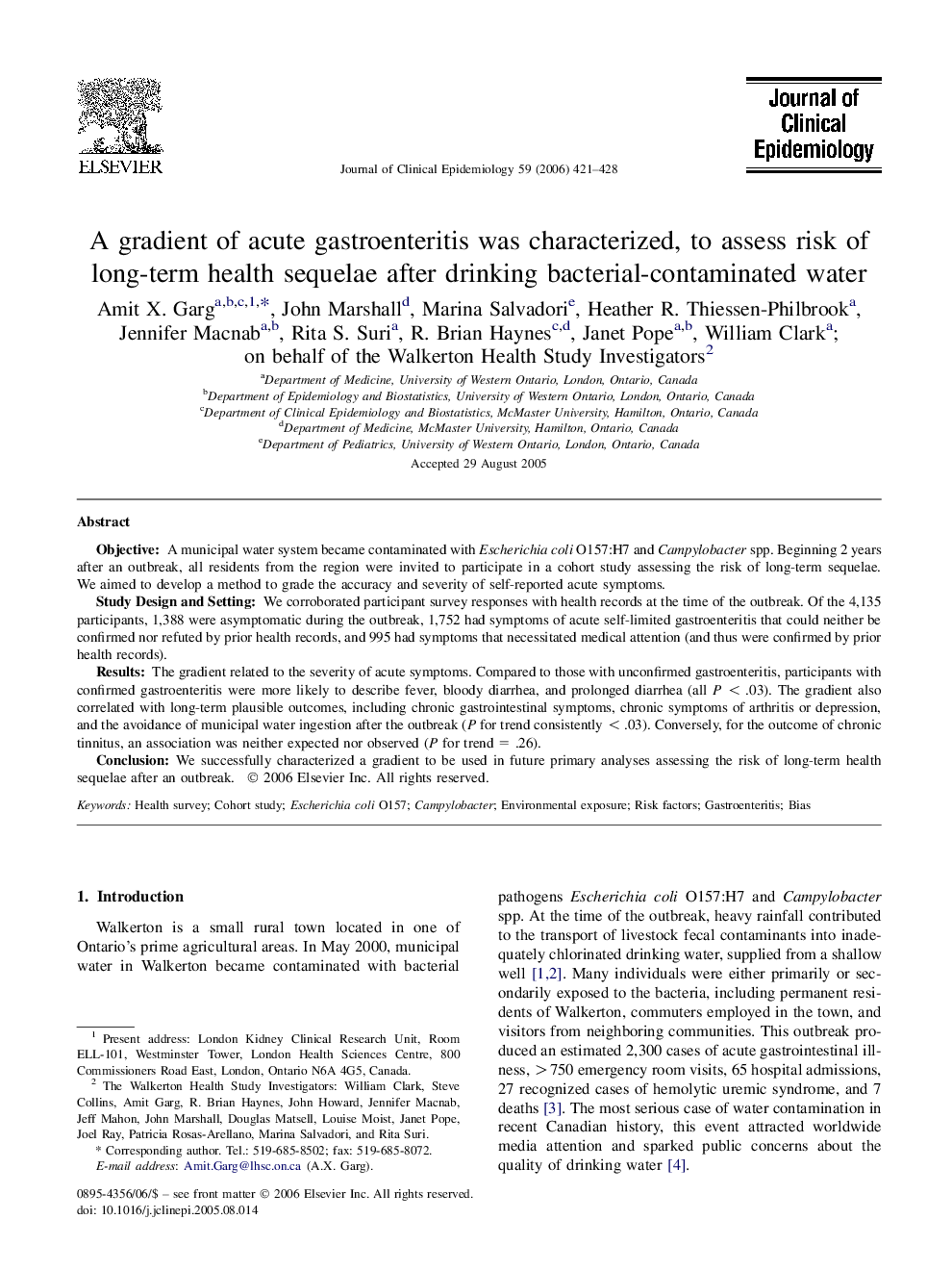| Article ID | Journal | Published Year | Pages | File Type |
|---|---|---|---|---|
| 1083325 | Journal of Clinical Epidemiology | 2006 | 8 Pages |
ObjectiveA municipal water system became contaminated with Escherichia coli O157:H7 and Campylobacter spp. Beginning 2 years after an outbreak, all residents from the region were invited to participate in a cohort study assessing the risk of long-term sequelae. We aimed to develop a method to grade the accuracy and severity of self-reported acute symptoms.Study Design and SettingWe corroborated participant survey responses with health records at the time of the outbreak. Of the 4,135 participants, 1,388 were asymptomatic during the outbreak, 1,752 had symptoms of acute self-limited gastroenteritis that could neither be confirmed nor refuted by prior health records, and 995 had symptoms that necessitated medical attention (and thus were confirmed by prior health records).ResultsThe gradient related to the severity of acute symptoms. Compared to those with unconfirmed gastroenteritis, participants with confirmed gastroenteritis were more likely to describe fever, bloody diarrhea, and prolonged diarrhea (all P < .03). The gradient also correlated with long-term plausible outcomes, including chronic gastrointestinal symptoms, chronic symptoms of arthritis or depression, and the avoidance of municipal water ingestion after the outbreak (P for trend consistently < .03). Conversely, for the outcome of chronic tinnitus, an association was neither expected nor observed (P for trend = .26).ConclusionWe successfully characterized a gradient to be used in future primary analyses assessing the risk of long-term health sequelae after an outbreak.
